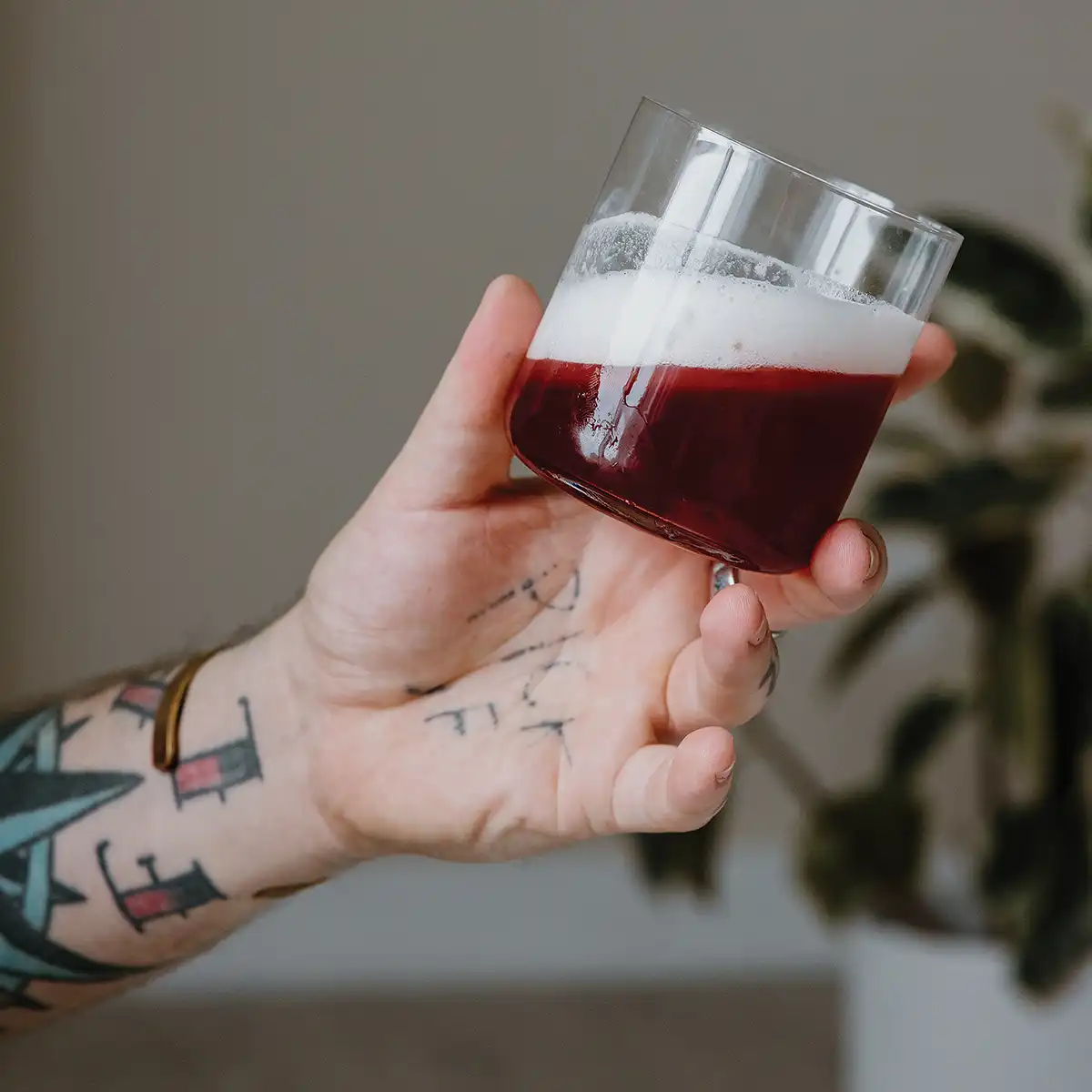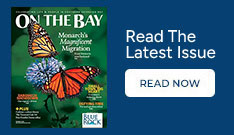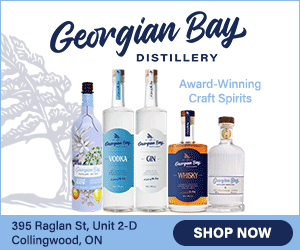From Dry January resolutions to zero-proof drink menu options, Southern Georgian Bay is increasingly, and justifiably, sober curious.
by Jen McNeely // photography by Stacey Blount
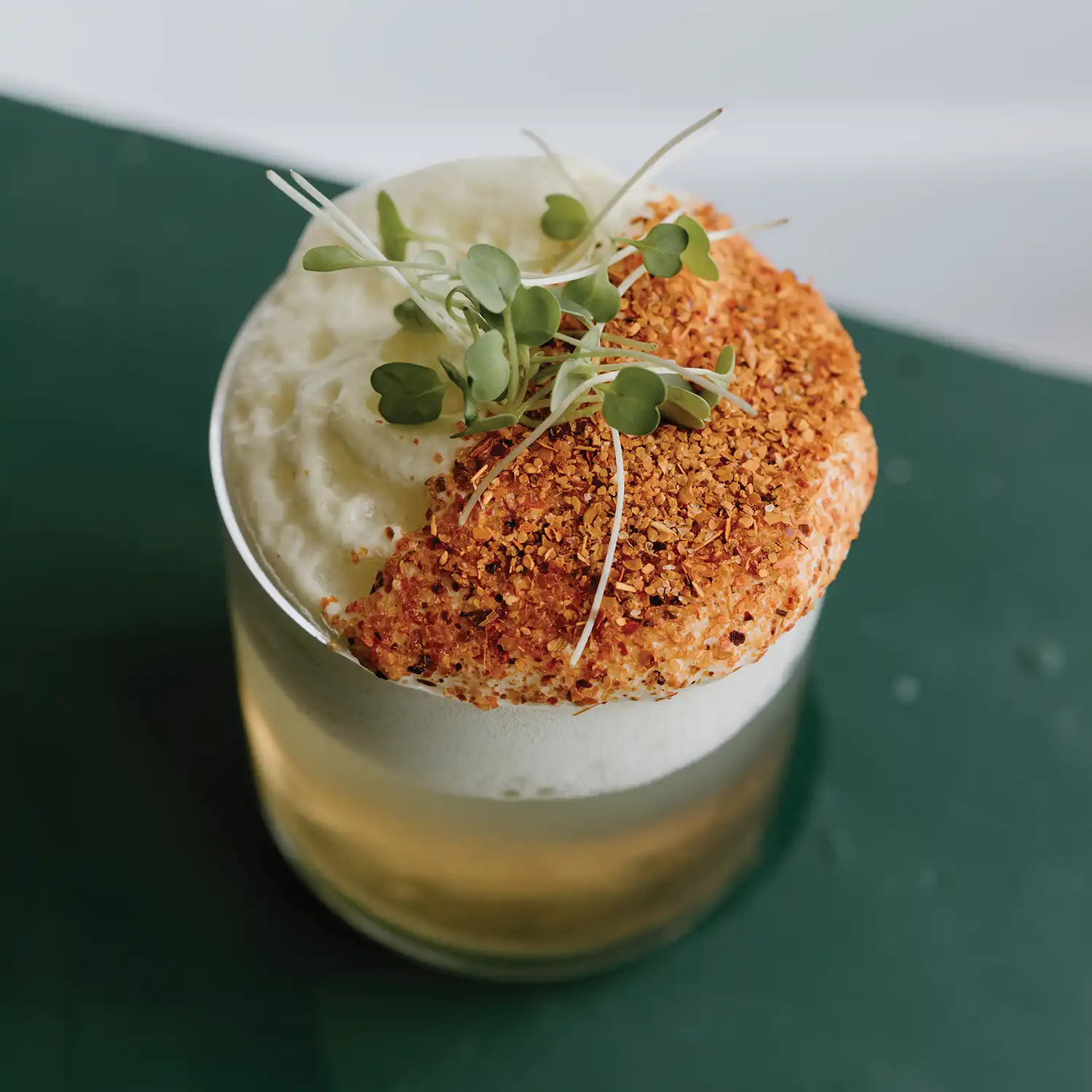
I got sober in 2010, and in those early years, my decision to not drink was often met with puzzled glares, or utter disbelief. “You stopped drinking? But WHY?” Friends and strangers alike were curious. Some assumed I’d forever banished myself to the Land of No Fun. But those of us who’ve made the switch know that life without alcohol—without hangovers, or next-morning regrets—is infinitely better.
The transformation is profound. After 30 days of abstinence—the trial period health experts recommend to break a habit and observe changes—dramatic lifestyle shifts begin to take shape. People often describe a fog that lifts, and when it does, a newfound clarity. No longer using a numbing substance, senses are heightened, bodies start to feel better. While still countercultural, sobriety is more widely accepted now than a decade ago, and in the past three to five years, the non-alcoholic category has seen a surge of growth.
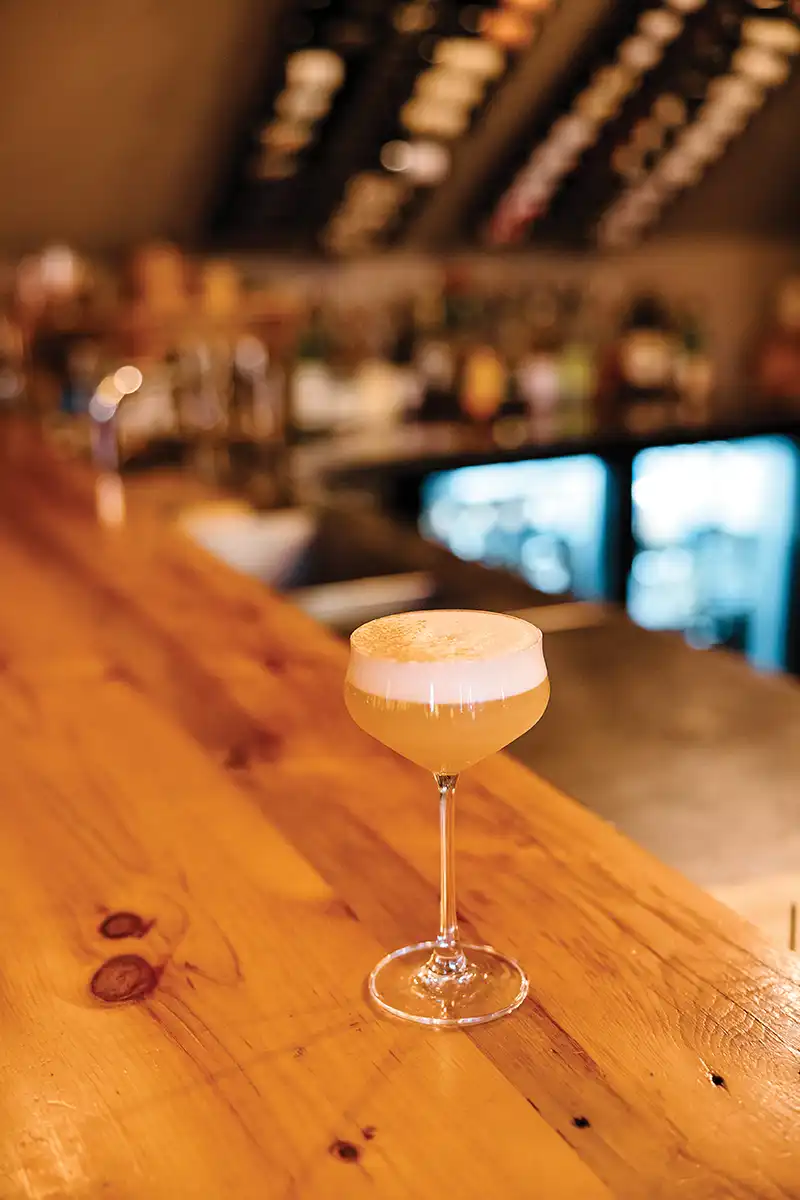
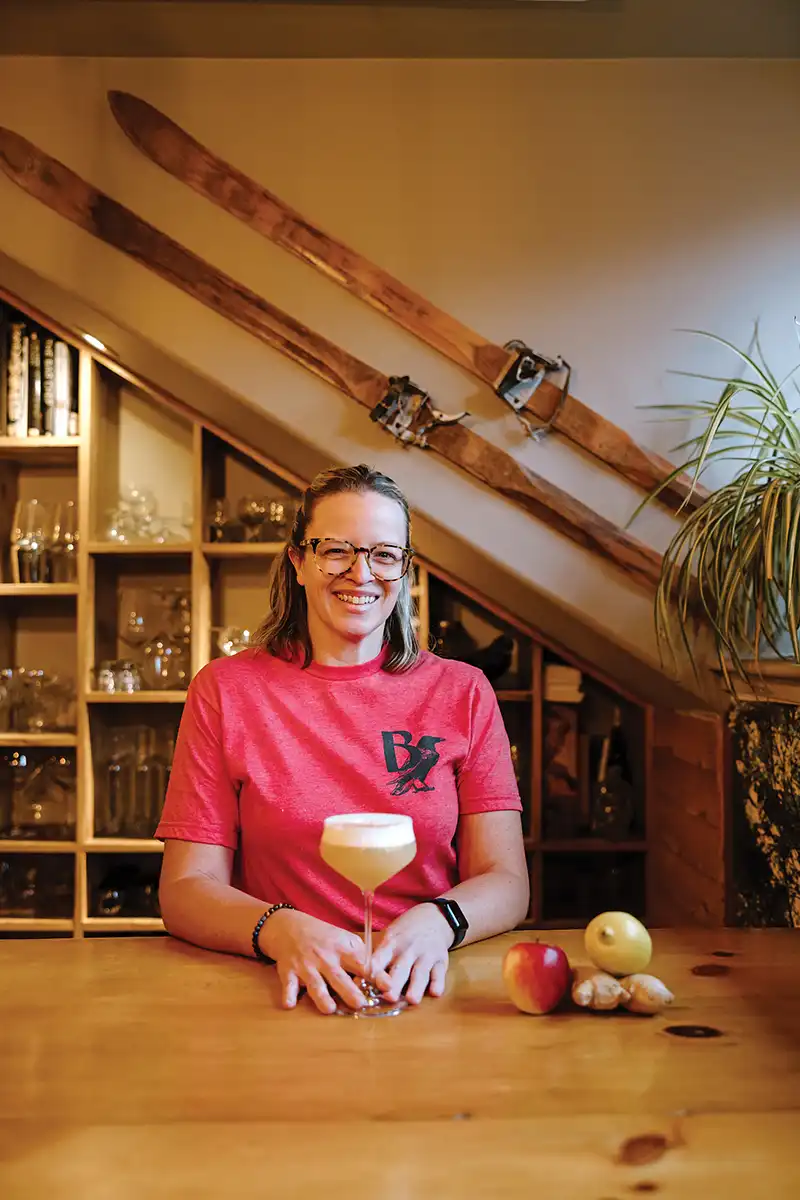
“Having non-alcoholic options on a menu is becoming more difficult to ignore,” says David Thompson, president and co-founder of Clearsips, an Ontario-based, family-owned business dedicated to bringing premium non-alcoholic drinks to Canadians. “Consumers are much more vocal about zero-proof options than they were even a year ago.” Sobriety has become admirable, trendy. Some might even call it a movement.
Since launching in 2022, Clearsips has established partnerships with over 250 vendors and retailers across Canada. In the early days, it was a challenging pitch, but the tide is turning. “We have started to see restaurants coming to us eager to expand their offerings,” says Thompson. “We’ve also learned that the consumer who is not drinking alcohol is most likely to choose the venue in their friend group. So as a restaurant, if you don’t have good options, you’re missing out.”
Blue Mountain is one of the latest big partners to sign on, ensuring that the 2024 ski season will be more inclusive to guests. A broader offering of elevated non-alcoholic options signals a shift in après-ski culture, which has been synonymous with boozin’ since the advent of the sport.
Change in Southern Georgian Bay is happening off the slopes too. Thornbury’s Bruce Wine Bar has been steadily expanding their non-alcoholic offerings.
“If you’re electing not to drink alcohol, for any reason, we want you to have a thoughtful, curated beverage to enjoy just like the rest of our beverage program,” says co-owner Nicole Paara. This winter, the restaurant is mixing libations with Canadian-made Lumette! non-alcoholic spirits, and infusing with citrus, ginger and elderflower. It also serves a variety of non-alcoholic beers and pairs local non-alcoholic ciders with fresh ingredients.
“We continue to research and test new products to improve the menu,” says Paara. Long gone are the days when sober folks or designated drivers were forced to choose between a soda pop or a Shirley Temple.
I stopped drinking because it was slowly killing me—wrecking my body, straining my relationships, and robbing me of my full potential—but you don’t have to wait until your life is imploding to make a healthy change. And these days, people aren’t waiting.
Long gone are the days when sober folks or designated drivers were forced to choose between a soda pop or a Shirley Temple.
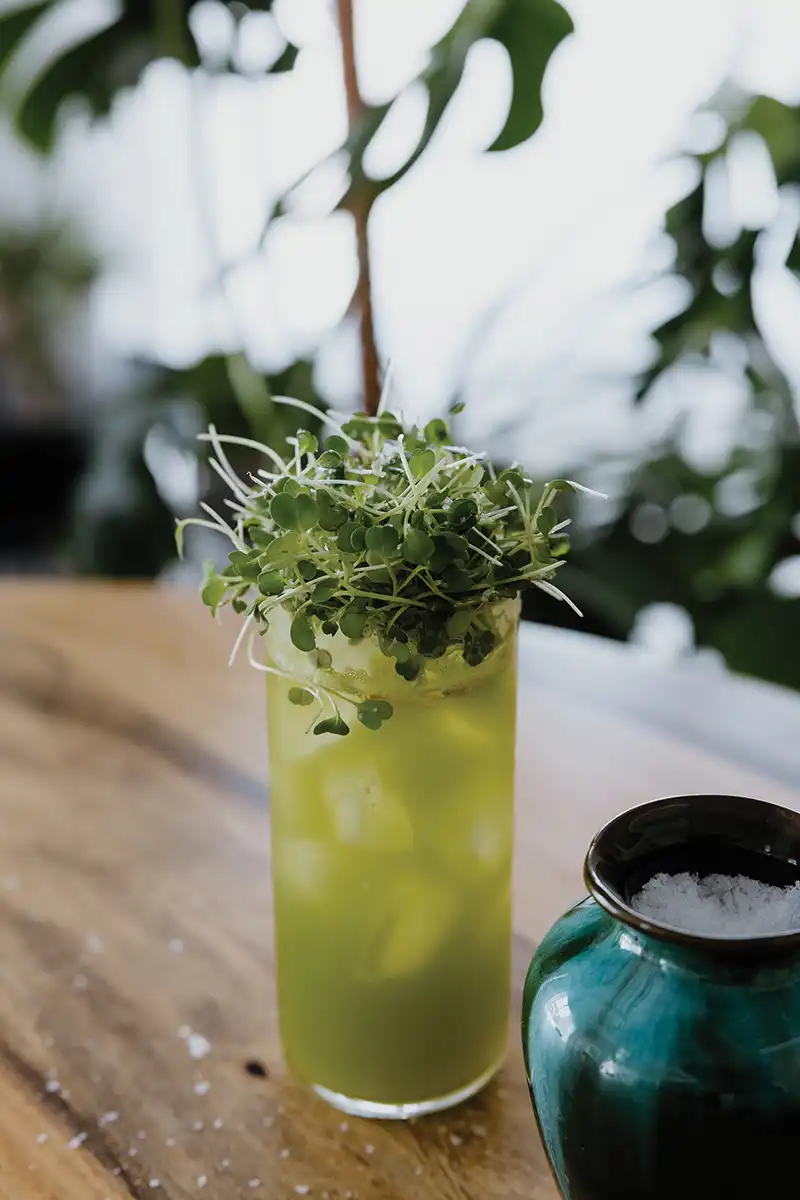
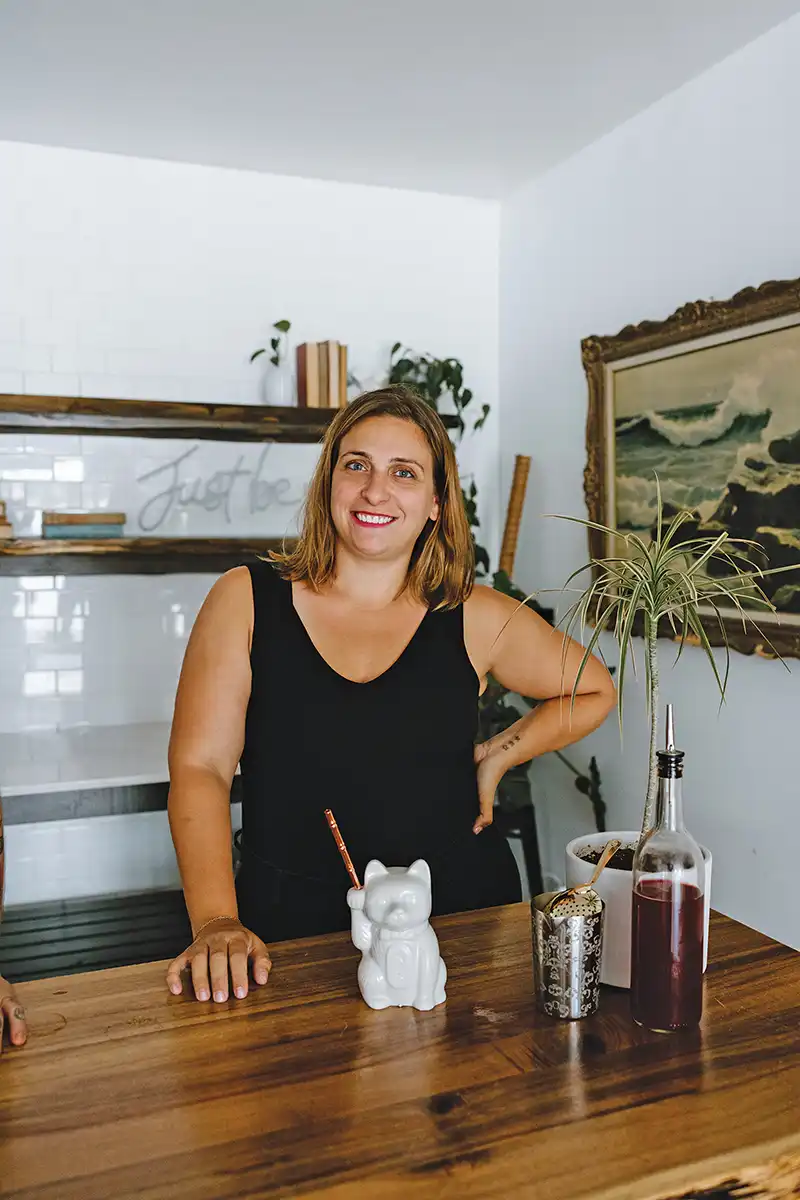
“I can’t drink how I used to, and I know a lot of people feel the same way,” says Christina Buttarazzi, founder of Collingwood’s Paradox So/Bar Lounge, a travelling zero-proof pop-up with a mission to embrace “sober, sober-ish, and sober curious living.”
Paradox So/Bar launched in late summer with a rowdy dance party. The well-attended sober event confirmed that there is a strong and growing community who desire an alternative offering. Buttarazzi has been partnering with local events, but her ultimate vision is to open a brick-and-mortar space dedicated to creative and high-quality non-alcoholic drinks. She’s certain the region is ready for a sober bar.
“Collingwood is a health-conscious community, a very active community. After a bike ride or a ski run, people want to cool down with a drink for an après, but not necessarily put alcohol in their body after they’ve done all that hard work,” says Buttarazzi.
Buttarazzi doesn’t fully abstain from drinking, or consider herself to be sober, but she also can’t remember the last time she had a drink, and she’s noticed many of her peers have also left alcohol behind. “There’s been an increase in the number of reasons that people don’t drink and also an increase in how much people are spending on non-alcoholic beverages. A few years ago, you may have assumed that someone who isn’t drinking had a problem with alcohol. But everyone I’ve talked to now has a different reason. Whether it’s for a cleanse or for clarity, people just feel better. I can’t speak to the science behind it but I just know that you feel better when it’s not in your body.”
The science of alcohol, and how it affects our bodies, is something that Ann Dowsett Johnston can speak to. The bestselling author (who grew up on Georgian Bay in a cottage built by her grandfather and Group of Seven painter A.Y Jackson) has been sounding the alarm on the health impacts of alcohol since she first published Drink: The Intimate Relationship Between Women and Alcohol 10 years ago.
“The fact that 15 percent of breast cancer cases are attributed in full to alcohol—we didn’t accept that then, maybe we’re beginning to,” says Johnston.
Change is not something that humans embrace easily. Remember when no one wore seatbelts? When half the guests at a restaurant smoked? It took a long time for people to accept the fact that cigarette smoking caused lung cancer—even after it was stamped in large bold ink on the back of every pack. Johnston sees parallels between the tobacco and alcohol industries.
“The science is robust, but the gap between what we know and what we don’t do is enormous,” warns Johnston, adding that science isn’t enough to inspire significant change.
“You have to push on three levers to change public consumption: you have to push on marketing, you have to push on prices, and you have to push on availability, and we haven’t pushed on any of those.”
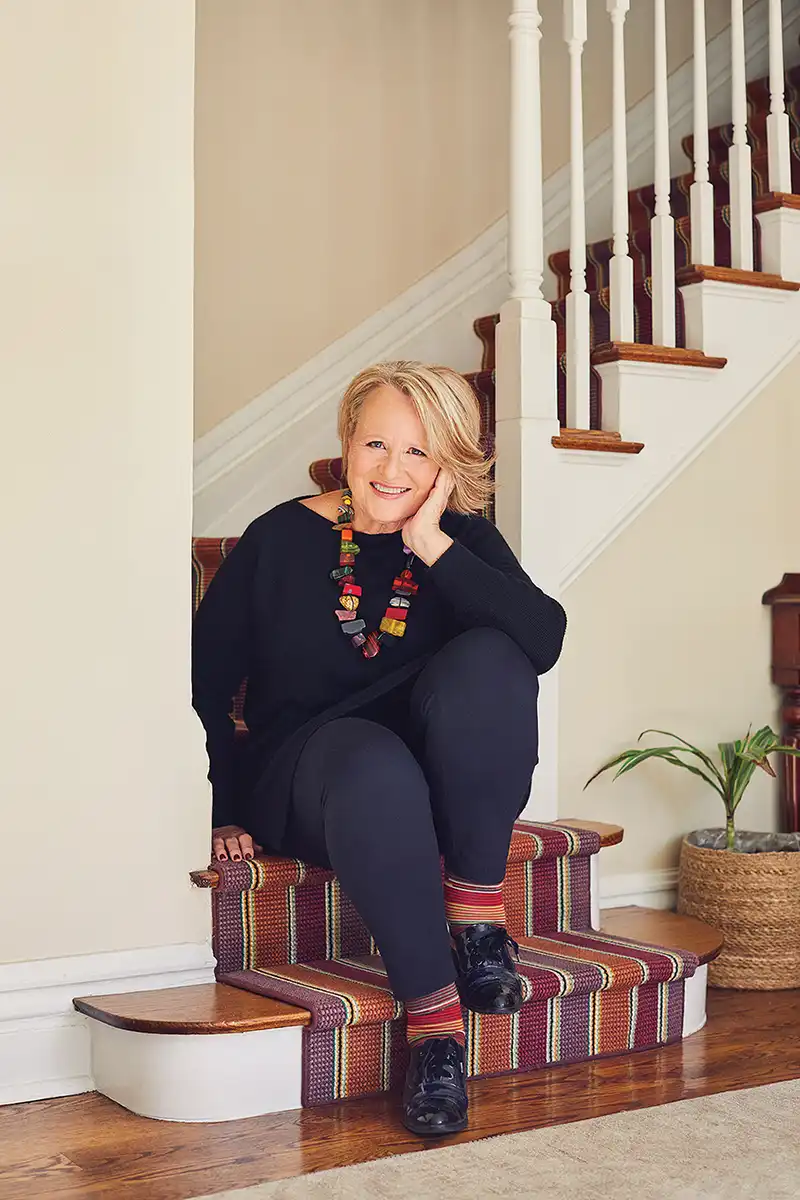
What has changed, however, is Canada’s drinking guidelines. In 2011, the Canadian Centre on Substance Use and Addiction (CCSA) suggested no more than 10 standard drinks a week for women and 15 standard drinks a week for men. In January 2023, the CCSA drastically revised their guidelines, and outright stated that “no amount or kind of alcohol is good for your health.” It specified one to two drinks a week, for both men and women, as “low risk,” and more than seven drinks a week “high risk.”
The news wasn’t received well. There was an outcry calling the new guidelines “ridiculous” and “over the top,” but experts and health professionals were quick to weigh in.
“Canadians need to know there are serious health risks associated with drinking alcohol, including elevated risk of multiple types of cancer. Many Canadians are unaware that alcohol consumption increases the risk of cancer, and most don’t realize they are drinking unsafe amounts. This guidance is so important because it clarifies that the less alcohol you drink, the lower your cancer risk,” said Andrea Seale, CEO of the Canadian Cancer Society.
Johnston credits the new guidelines with helping people accept the science. “It’s going to take a long time to see a cultural shift, but we’re definitely seeing a change in the appreciation of the science. A lot more people are experimenting with cutting back, and we’ve also seen a modernization of recovery. Twelve-step is no longer the only option. There are many other options for getting sober. The whole landscape has shifted.”
The popular Dry January campaign provides a wonderful opportunity to explore what life feels like without alcohol.
“When there’s a collective, it makes things easier. You can go online, use the hashtag #DryJanuary, find other people doing it, or find an event. You’re not doing it alone!” says Buttarazzi, who says she has yet to meet someone who regretted cutting back on their drinking.
Of course, January also comes with a sense of renewal and promise, a natural time of year to begin a new chapter. “It’s an important month for course correction,” says Johnston, who turned 70 this past year, and recently celebrated 15 years of sobriety. “It’s a brilliant opportunity to reflect on your habits and your consumption, and to reflect profoundly on the fact that—according to societal norms—alcohol is the only way to relax, reward and celebrate. That’s just not true. I’ve never been happier.”
